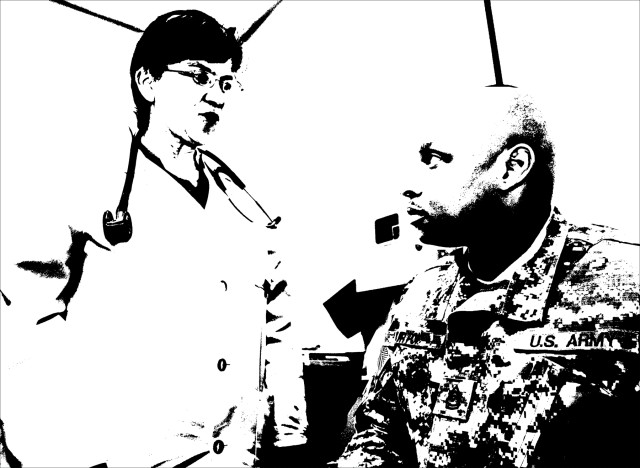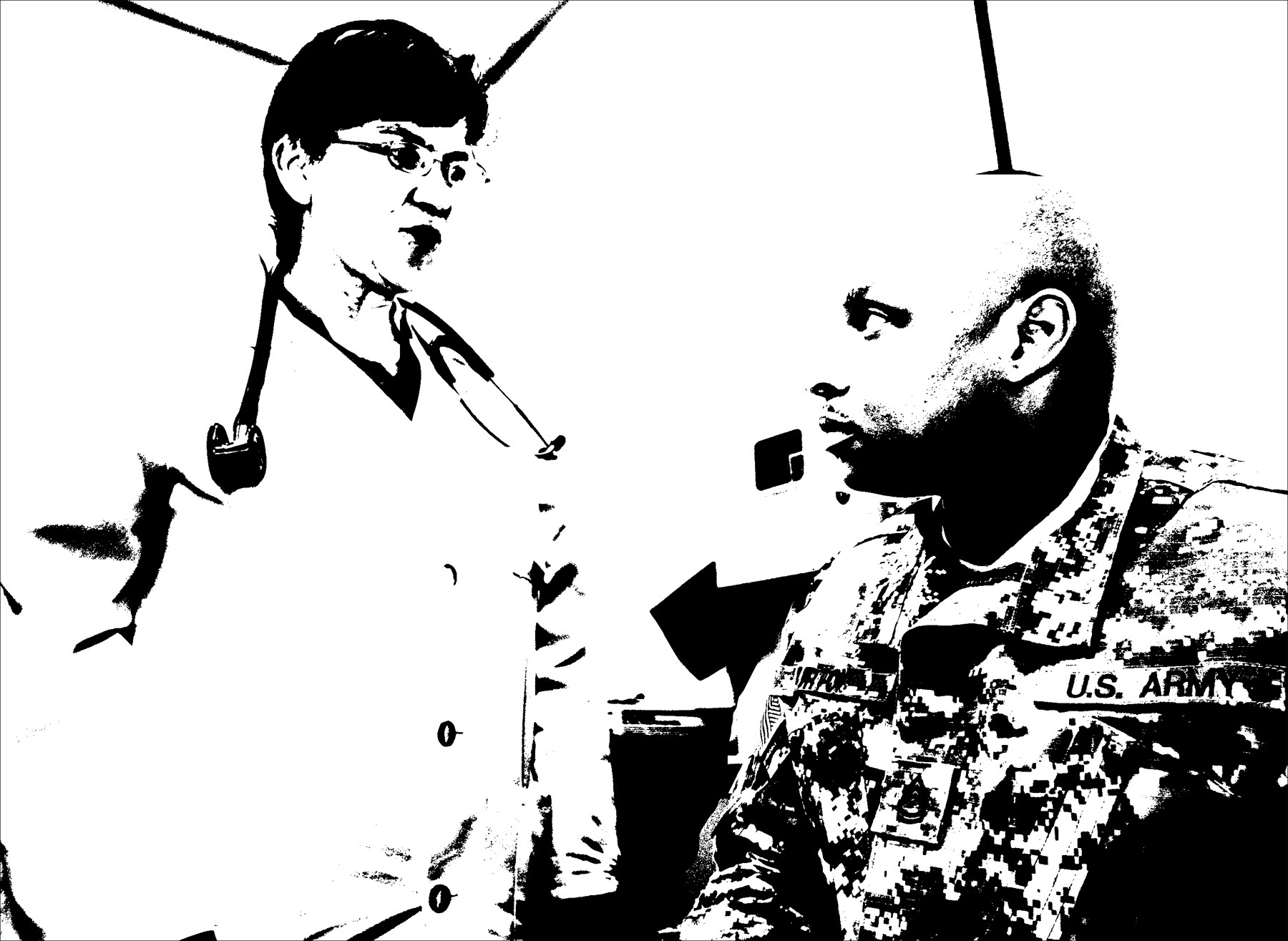HEIDELBERG, Germany (Army News Service, July 21, 2008) Aca,!" According to Army medical officials, the new Re-Engineering Systems for the Primary Care and Treatment of Depression and PTSD in the Military program is designed to help providers recognize warning signs and treat those disorders early while eliminating Soldiers' fears about the stigma of psychological illnesses and their treatment.
Program officials say RESPECT-MIL takes advantage of any visit Soldiers make to their assigned primary care physicians for any reason, turning those visits into opportunities to detect symptoms that could indicate that the Soldier is struggling with PTSD.
"The Army is doing a lot more as far as trying to reach out and find Soldiers who are having issues but are reluctant to seek mental health care due to the historical mental health stigma within the military," said Dr. (Maj.) David Johnson, a Schweinfurt Health Clinic psychiatrist.
According to Col. Angela Pereira, director of Soldier and Family Support Services for the Europe Regional Medical Command, Soldiers usually visit their primary health providers 3.4 times a year on average, and each of those visits is a chance for doctors to detect any behavioral health problems and get Soldiers the treatment they need.
"RESPECT-MIL tears down the walls concerning PTSD by making questions concerning PTSD and depression a routine activity any time someone visits their local primary health provider, which offers Soldiers and their Family members extra chances to spot a problem early on," said Lt. Col. Raymond L. Gundry, ERMC's deputy commander of outlying clinics.
"We also try to make it clear to Soldiers that seeking help is not going to adversely affect their careers or make anyone think any less of them," he continued. "A major part of the process for 'tearing down the walls' is screening everybody that comes through, demonstrating that it is OK if someone suffering from PTSD seeks help."
By asking just a handful of questions, Gundry said, trained physicians can determine if a patient is suffering from depression or PTSD, and either help the patient -- if the physician is qualified -- or refer the patient to a mental health specialist.
Maj. Joseph Dougherty, the chief of behavioral health at the Vilseck (Germany) Health Clinic, recently completed the three-day RESPECT-MIL training program. He said the course teaches different approaches to detecting and treating depression and PTSD.
"We learned about how the different processes of screening, identifying, and treatment of these disorders function under RESPECT-MIL; did some role play; and had a rundown of the entire program," Dougherty said. "We also learned how we can educate other primary care providers and psychiatrists in the RESPECT-MIL system."
Gundry said the bottom line is that "the training RESPECT-MIL provides allows primary health care providers to get help for their patients immediately."
For example, he explained, if a Soldier visits a physician trained in RESPECT-MIL methods for a physical exam, the doctor might ask if the Soldier has had difficulty sleeping or has been feeling constantly "down." Based on the answers, the doctor can determine if the Soldier may be suffering from PTSD or depression and recommend treatment.
"Screening all Soldiers and getting their doctors to talk to them about mental health" is a critical step to treating the increased number of Soldiers with mental health problems, Johnson said. "The cycle of deployments that (we are) in has generated a lot more mental health problems in Soldiers who might otherwise never have seen me.Aca,!A?
The Army's RESPECT-MIL initiative was developed at the Fort Bragg, N.C., RESPECT-MIL Center of Excellence, the organization leading the Army's worldwide implementation of the program. The Army's effort is based on "Re-engineering Systems for Primary Care Treatment of Depression," a model created by researchers at Duke University Medical Center, Dartmouth Medical School, and others, according to reports in the journal Psychiatric News.
"The trials performed at the Fort Bragg Center of Excellence showed a significant increase in the successful diagnosing and treatment of Soldiers with PTSD and depression," said Pereira. Gundry added that during the 2006 trials, 60-90 percent of PTSD patients showed improvement.
"The Center for Excellence is the 'home base' for RESPECT-MIL, and is the precedent-setter for the program," said Gundry. "That doesn't mean that the program can't change with the needs of the Soldiers. The program will become more efficient with time and experience, thanks to frequent communication between the different sites. This will allow for the rounding out of RESPECT-MIL, and ensure that it stays relevant and useful."
"This program is Armywide. Fifteen sites have been chosen for the first major wave of RESPECT-MIL dissemination. Almost all of them are up and running, or will be soon,Aca,!A? he said.
According to Gundry, the next step for ERMC is getting the program operational throughout Europe, a process already underway, with Schweinfurt, Vicenza and Vilseck health clinics using the program.
The Army and the Office of the Surgeon General have both taken steps toward addressing the rising need for behavioral health care and reducing the stigma perceived by those seeking such care. The Army has done so in part by implementing chain teaching programs about PTSD and mild traumatic brain injury, and the OTSG through the creation of RESPECT-MIL.
(EditorAca,!a,,cs note: Pfc. Michael Syner serves with the U.S. Army Europe Public Affairs Office. Kimberly Gearhart serves with the U.S. Army Garrison Schweinfurt Public Affairs Office. Their reports were combined for this article.)


Social Sharing